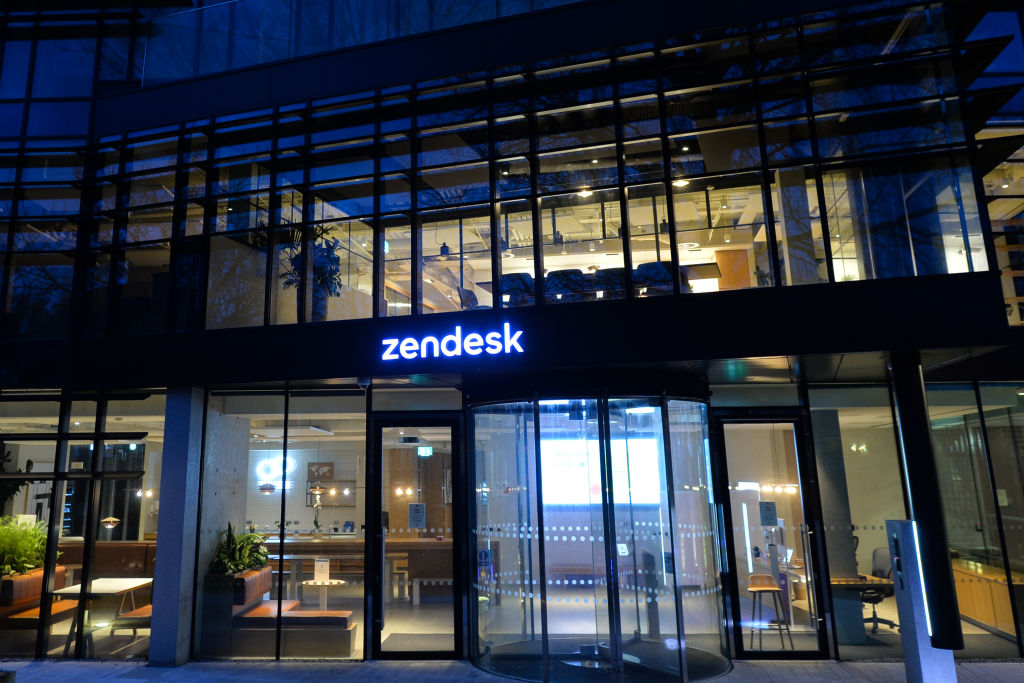When we published our last low-code/no-code investor survey in August 2020, the former president had decided to ban TikTok, Epic was filing antitrust cases against Apple and Google, and movie theaters around the U.S. were shuttering to slow the spread of the then-novel coronavirus.
Seems like a long time ago.
Since then, many of the key trends and themes we surfaced have come to pass: Airtable clinched an $11 billion valuation in December 2021 after raising a $735 million Series F with help from Salesforce Ventures and Michael Dell’s MSD Capital.
Full TechCrunch+ articles are only available to members
Use discount code TCPLUSROUNDUP to save 20% off a one- or two-year subscription
Not to be outdone, Microsoft’s Power Fx low-code programming language that it launched in 2018 now connects hundreds of apps. The rapid shift to digital since the pandemic began has turned many companies into converts, particularly now that DevOps talent is in such high demand.
Eighteen months ago, many people were still getting comfortable with no-code and low-code. Today, “it’s transforming entire categories of enterprise software,” says Navin Chaddha, managing director at VC firm Mayfield.
To learn more about how the space has evolved “and when they expect their investments to start paying off,” Karan Bhasin interviewed:
- Sri Pangulur, partner, and Paul Lee, partner, Tribe Capital
- Ganesh Bell, managing director, Insight Partners
- Renato Valente, general partner, Iporanga Ventures
- Mo Islam, partner, Threshold Ventures
- Tommi Uhari, founding partner, Karma Ventures
- Navin Chaddha, managing director, Mayfield
- Alex Nichols, vice-president and Laela Sturdy, general partner, CapitalG
- Raviraj Jain, partner, Lightspeed Ventures
Thanks very much for reading TechCrunch+ this week!
Walter Thompson
Senior Editor, TechCrunch+
@yourprotagonist
10 investors discuss the no-code and low-code landscape in Q1 2022
Why I’m using a credit facility to grow my startup

Entrepreneurs who want to accelerate growth and retain more of their equity may understand SPACs, peer-to-peer lending and crowdfunding, but for some startups, securing a credit facility is also a viable option.
With a credit line, early-stage companies can ramp up hiring and product development, using additional resources to validate ideas in the marketplace. Depending on your business, extending credit to customers can also jump-start growth and lock in financial stability.
“For our business model, raising a credit facility to fund all of the spend for our customers made the most sense,” says Torpago CEO Brent Jackson.
His company secured $77 million in funding, “of which $75 million was a revolving credit facility, and the remaining was in equity.”
Doing so permitted Jackson to extend lines of credit to customers “and incorporate that debt into our capital stack in a way that minimizes the long-term cost of capital.”
In a TC+ guest post, he walks readers through the process of raising debt equity, keeping employees informed, and finding a lender to work with. “There was a lot of learning on the go,” he acknowledged.
Leverage early investors when raising a Series A, says DeepScribe’s Akilesh Bapu

While raising a Series A for AI-powered medical transcription platform DeepScribe, CEO and co-founder Akilesh Bapu set clear timelines for the investors he approached.
Index Ventures partner Nina Achadjian received Bapu’s pitch deck while she was still on vacation, but the founder wouldn’t let her schedule a meeting for the following week.
As it turned out, Bapu’s instincts served him well.
“When I walked out of the meeting, I went immediately to one of my partners, and was like, ‘Finally, I found the company that is following the right approach,” said Achadjian.
Leverage early investors when raising a Series A, says DeepScribe’s Akilesh Bapu
After 2 rejected deals, Zendesk considers its next steps

Zendesk is doing very well: in 2021, revenue increased 30% year-over-year. A glance at the outlook section of its earnings announcement suggests that more growth is in store.
But on the same day it released those results, the company also rejected a proposed $17 billion acquisition by a consortium of private equity firms, saying the deal “undervalued the company.”
At the time, Zendesk was angling to purchase Momentive/SurveyMonkey for $4.13 billion, but last Friday, we learned that Zendesk’s shareholders weren’t as eager to enter the customer experience business as CEO/founder Mikkel Svane.
Now that the Momentive deal is dead, Ron Miller and Alex Wilhelm performed a post mortem.
“Was Momentive’s potential revenue sufficient to justify the price tag that Zendesk was ready to pay, its plunge into the customer experience market, and the fact that it would have led the acquirer away from its core customer service orientation?
What’s your BNPL startup really worth?

Consumers are burdened by stagnant wages and inflation, but many don’t mind carrying some debt around if it means they can possess the new hotness.
This behavior is boosting the fortunes of buy now, pay later (BNPL) companies, but their valuations will hinge on finding the right mix of market, customer base and revenue model, reports Alex Wilhelm in his analysis of Australian BNPL company Zip’s proposal to buy rival Sezzle.
Sezzle and Zip’s revenue are worth much less than larger rival Affirm’s, which could be attributed to the latter’s presence in the U.S., and its higher take-rates.
“But the huge gap in worth between BNPL revenues at Zip and Sezzle and Affirm should give BNPL startups pause,” he writes.
“Is your startup more like Affirm or more like its smaller competitors? And if you are priced more like Affirm, why? Do you deserve the premium?”
Implement differential privacy to power up data sharing and cooperation

Preserving customer privacy is paramount, but as increasing amounts of data intermingle, many organizations are falling short.
Differential privacy is the answer to this problem thanks to an approach that involves “sharing data processing results combined with random noise so that the output does not tell a would-be attacker anything statistically significant about a target,” write Maxime Agostini, the co-founder and CEO of Sarus, and Tianhui Michael Li, founder of The Data Incubator.
Agostini and Li explain how differential privacy works, how to select the right architecture to implement it, and facilitate data sharing, and include a list of open source libraries companies can get started with.
Implement differential privacy to power up data sharing and cooperation





























Comment